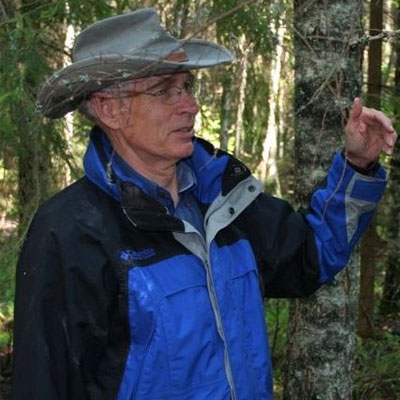
Richard Waring
Richard Waring is emeritus Distinguished Professor of Forest Science at Oregon State University. In his long career, he has held guest and visiting professorships at leading institutions around the world, and has served as administrator of a NASA program exploring land-atmosphere interactions and as a long-term consultant to NASA on forest modeling projects.



